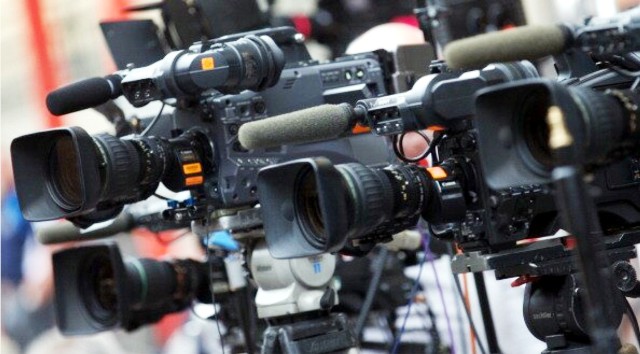Opinion
Managing Government, Media Relationship

The period of bitter antagonism and fiery relationship between the government and the media is over. The media war was experienced under military dictatorship when the media fought its fiercest and most daring war with the government.
The era witnessed the use of obnoxious measures and ferocious forces of facism to coarse the voice of truth, objectivity and plurality of opinion. It was a period dogged by endless clashes and scuffles between journalists and security personnel who clamped down on media houses in an overzealous orgy to sustain the vested interest of the aberrant military authorities.
It was a period trailed by unconscionable victimisation of journalists in the course of performing their civic and professional responsibilities.
Virtually all the Nigerian military despots rolled out their drums of repression against the media in a bid to perpetuate dictatorship and stifle the voice of reason.
As the custodian of truth and the conscience of society, the media became the most vulnerable institution under the military. With utmost zeal, the media fought on until 1999, when the military capitulated to demand for democratic governance.
The successful transition to democratic rule in 1999, heralded a new beginning in the lives of Nigerians. They felt liberated from the decades of captivity under military rule. They felt relieved of the strategic deceptions and political permutations of the military and their civilian accomplices.
The media also adjusted its posture and bended towards helping the new democratic era to succeed. It becomes a moral burden on the part of the media to help in easing the emotional depression on the psyche of Nigerians occasioned by military dictatorship. Nigerians had to mend the broken pieces of their lives and they found in the media, a dependable ally.
The media itself was not ignorant of the need to join forces with the people to herald a new dawn where the rule of law and not the rule of the guns is sacrosanct.
The task was, however, so demanding. The aparty of the people towards governance as a result of military dictatorship waned their awareness. They had become victims of hysteric frustration, beholding matters relating to politics and governance with disgust.
This accounted for why most men of integrity dissociated from politics at that time. It was, therefore, another opportunity for goons and military apologist to rise to sensitive political offices on a platter of gold.
But the media did not lose touch with the reality. The major achievement was to have sent the military to their traditional base before facing the unfolding realities of politics in the country.
It is easier for the media to strive in a democratic system despite the obvious institutional challenges it has to contend with. At least, the freedom of the press is guaranteed to a large extent, and the bulk of the responsibilities is now shifted towards setting agenda for the new regime and reorientating Nigerians to embrace the new vistas of political opportunities to repair their battered life.
With military rule naturally phasing out, the coast becomes clearer for a thriving working relationship between the government and the media. But our present leadership at all levels must apply a meticulous caution to keep the putschists permanently at bay. To win the heart of Nigerians, our political leaders must ensure that they manage the state coffers with a sense of responsibility.
They must realise that the media are corporate partners in the process of governance. They must not treat the media as enemies because the media is vested with the constitutional mandate of checking the excesses of power and holding political leaders accountable to their sworn mandate.
Managing post election tensions has always been a difficult task for Nigerians as cases of betrayal of trust, witch-hunting and other forms of mutual suspicion always rear their ugly heads.
Lack of political ideology also devalues our political system, making politics a game of self appropriation rather than service.
The bulk of the responsibilities of governance in the present democratic dispensation dictates that the face-off between the media and the government needs not arise. Both the media and the government have responsibilities towards the society. Occasionally, the media has to be judgemental but with finesse, decorum and restraint.
The goal of criticism should be to make the criticized see his problem or mistake in a candid, honest manner, rather than through incisive vitriolic and outrageous publications.
Journalists must not deploy their creative energies to resentful, mind-boggling criticisms, but must be at the very centre of social reformation, presenting the truth in a more objective manner.
The journalist must advocate for justice, fairness, peace, honesty, truth, public trust and accountability, while government must not see the penchant of the media for truth as antagonistic.
Government should see the media as a tool of development which should complement its effort in effecting good governance and building trust in the society. The preservation of civil liberties for all and the enjoyment of the fruits thereof depend on a point of convergence between the government and the media.
For Nigeria to rise above the shadows of gloom and unhealthy political rivalries, the citizens, the government and the media must have a symbiotic relationship.
Taneh Beemene
Opinion
NDDC: Time To Illuminate Homes

Opinion
When Democracy Becomes Too Expensive

Opinion
Righteous Leadership Still Thrives

-
Politics2 days ago
2027: NIGERIANS FAULT INEC ON DIGITAL MEMBERSHIP REGISTER DIRECTIVE
-

 Environment2 days ago
Environment2 days agoLAWMA Director Says Sweeping Reforms Have Improved Waste Collection
-
Politics2 days ago
LP Crisis: Ex-NWC Member Dumps Dumps Abure Faction
-

 Sports2 days ago
Sports2 days agoAbia Not Sure To Secure continental Ticket
-

 Politics2 days ago
Politics2 days agoUmahi Dismisses Allegations On Social Media, Insists On Projects Delivery
-

 Transport2 days ago
Transport2 days agoFAAN Announces Pick-Up Points for Go-Cashless Cards
-
Sports2 days ago
La Liga: Yamal Records First Career Hat-trick
-

 Sports2 days ago
Sports2 days agoCity Survive Leeds’ Challenge At Elland Road

